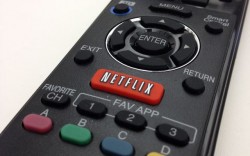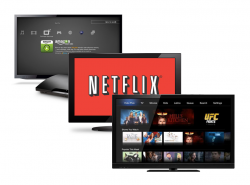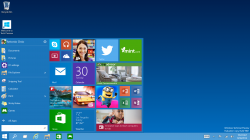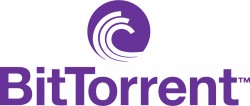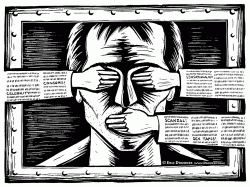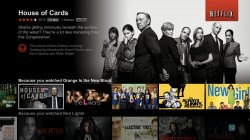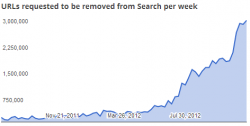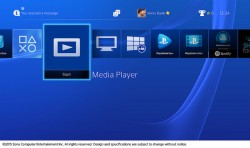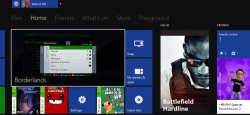A lot of news this week, but as is the sign of the times, most of it had to do with streaming. The big news coming out of the IFA consumer electronics show in Berlin was Samsung’s unveiling of the world’s first UHD Blu-ray player. UHD is the next big hope for TV manufacturers, and maybe the last best hope for physical media.
Here’s the news roundup …
![]()
The MPAA’s piracy paranoia has been highlighted again this week via detailed published on Amazon’s MPAA compliance page. With security guidelines that seems to have been taken from the CIA (with a few additional paranoia-fueled security precautions), the MPAA is taking no chances when it comes to having their content stolen (content, that Amazon helps to host on its AWS platform).
So baggy clothes are out, as are non transparent food containers (which you might use to hide storage devices). Random searches, body pat-downs are what employees at Amazon (those poor, poor souls) are expected to comply with, all in the name of preventing the very same movie leaks that happens all the time. I guess the MPAA must find the idea of pirates infiltrating Amazon, impersonating an employee (or maybe even actually getting a job there) so they can somehow hack into Amazon’s system, break through the encryption/security system that’s standard practice for hosting companies, all just to steal some pre-release content, all very plausible. Just as plausible as award season screeners DVDs that get sent to almost everybody getting ripped and put online? You’ll have to ask them.
So instead of worrying about people putting USB drives in their sandwiches in non-transparent food containers, perhaps they should be more worried about Netflix’s 4K content somehow getting ripped and uploaded online, despite the use of a new copy protection mechanism (HDMI 2.0’s HDCP 2.2). Or maybe they should learn to stop worrying and love the bomb, the bomb in this scenario being things getting pirated. Okay, love is perhaps too strong of a word, but surely they must realise by now that if something can be used/played, it can be ripped. The sane approach would be to stop worrying about something that’s almost certainly going to happen, and learn to accept the fact and try to work around the problem. Then there’s the MPAA’s approach …
![]()
Microsoft, Google, Netflix, Amazon, Intel, Mozilla and Cisco have joined forces. To do what? To come up with a new video codec, of course. So that’s software, hardware, networking, web services, video and content delivery and Internet software all covered, but despite this, the chance of something new coming in and taking over from HEVC, despite HEVC’s expensive and difficult to deal with licensing terms, appears slim. It’s very difficult to create a new codec and get the entire industry to accept it, especially when most, for all of its flaws, have already accepted HEVC and have adapted their strategy to deal with it. Then there’s the problem of patent claims, and it’s very hard to come up with any video codec these days without somebody trying to claim an existing patent from the myriad of technologies and concepts being used.
Good luck to them though, because the reality is that we really do need a viable royalty free alternative to HEVC.
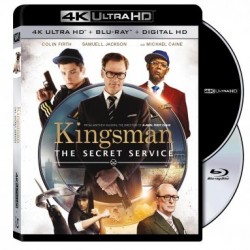
This is what 4K Ultra HD Blu-ray cover art will look like when discs become available early next year
The problem of HEVC royalties will be apparent with Ultra HD Blu-ray discs that will start being available towards the end of this year, as HEVC is one of the supported codecs for the format. At the IFA consumer electronics show in Berlin, Samsung this week unveiled the “world’s first” Ultra HD Blu-ray player, although with it not being available until early next year, it may not actually be the world’s first Ultra HD Blu-ray player available on the market.
Fox also took to the same stage to announce their Ultra HD Blu-ray movie line-up. New releases starting next year will be simultaneously available on standard Blu-ray, Digital HD and UHD Blu-ray, with catalogue titles like Exodus: Gods and Kings, Fantastic Four, Kingsman: The Secret Service, Life of Pi, and X-Men: Days of Future Past all being made available on the new disc format.
It’s difficult to predict whether UHD Blu-ray will be a success or not, give the hard time Blu-ray is having at the moment and the public’s growing predilection towards all things digital. So despite the big IFA show in Germany, a lot of the news stories I’ve written this week has been about streaming (and most streaming news these days gets published on my new site, Streambly). For example, Amazon’s move to allow offline playback for selected titles in their streaming library, I think, is huge news. It’s the one thing that still bugs a lot of people about streaming services, that there’s no easy way to access the content you’ve subscribed to when you’re away from a reliable Internet connection (or if your home Internet is temporarily down). To be honest, I’m surprised rights-holders allowed this to happen, since this really blurs the lines between streaming and downloading, and I would have thought this kind of thing would eat into their, and Amazon’s, transactional VOD and digital sell-through business.
The other big news is Hulu’s addition of a $12 no-ads plan, which finally makes it acceptable to many who finds the idea of paying money and still having to put up with ads detestable. With Hulu also signing deals left and right – including stealing Epix from Netflix, which will bring a lot of hit movies to Hulu to strengthen the one area that Hulu is extremely weak on at the moment – it looks like Hulu is set to go head to head with Netflix full on. $12 might be higher than Netflix’s $9, but you do get a whole host of new TV shows with Hulu that you would otherwise have to wait a year or more for on Netflix, so if Hulu can get their movie offerings up to scratch, they may have a chance.
![]()
So much for that rumour. The Xbox One Mini is not real. We now know it’s not real because Xbox boss Phil Spencer tweeted “not real” when asked about the possibly of a Blu-ray-less Xbox One. Good to know.
——
That’s it for this week. Remember to keep an eye on Streambly for streaming news (although most will only be relevant to Australian visitors). See you again soon.

